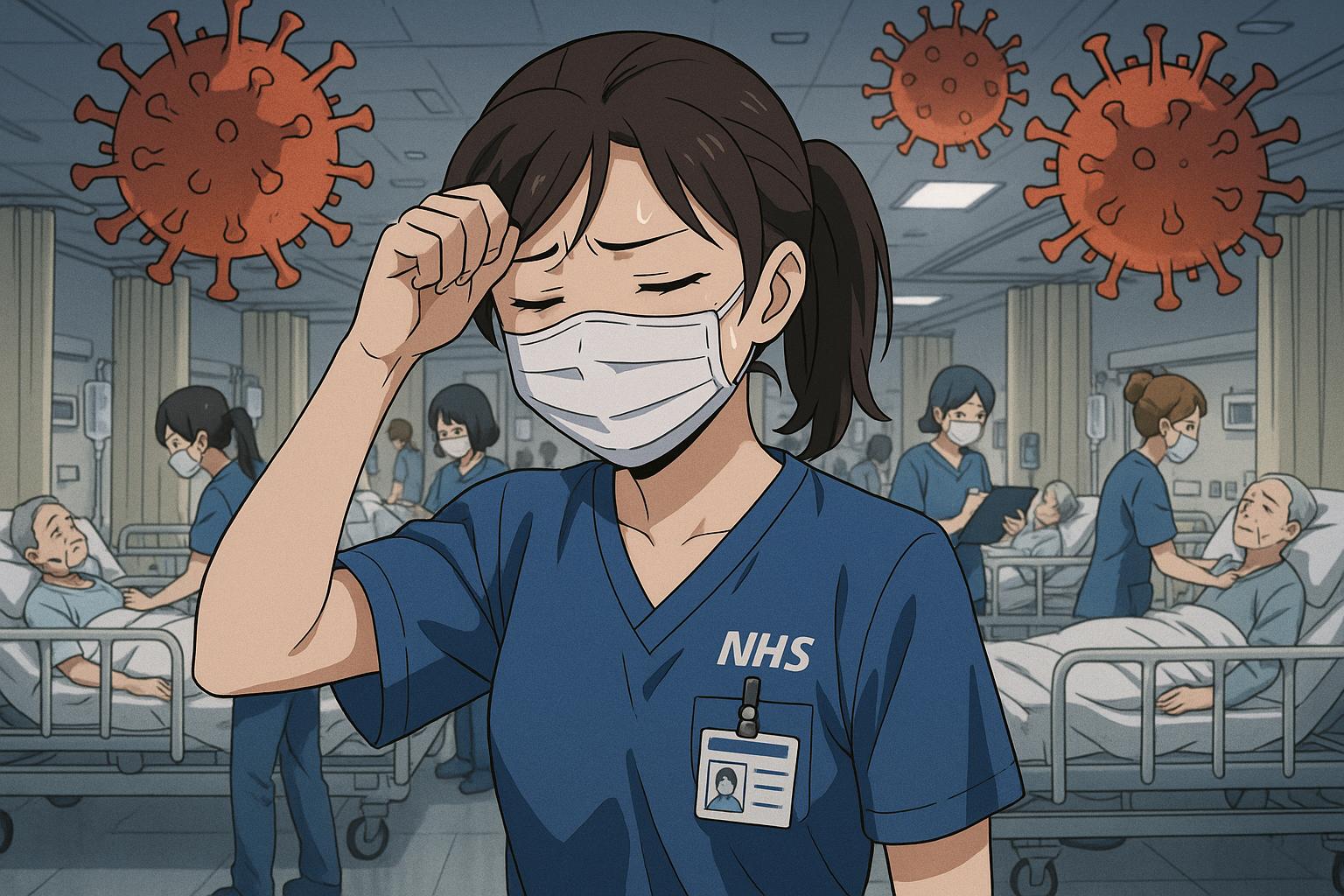Hospitals across the UK have faced crippling strain from flu outbreaks this winter, a crisis exacerbated by a sharp decline in vaccination rates among frontline NHS workers. Alarmingly, fewer than four in ten staff, specifically 37 per cent, opted for the flu vaccine, with some NHS Trusts reporting rates as low as 8.8 per cent. This record low represents a staggering fall from 64 per cent in the 2016/17 season, indicating a troubling trend in vaccine uptake that has vital implications for patient safety.
Patient advocacy groups have voiced their concerns, labelling these figures as “shocking” and expressing that the negligence from some staff increases the risk of severe illness or death among vulnerable patient populations. Dennis Reed, director of Silver Voices, a campaign group for older patients, remarked that it shows a “total disregard for patient safety,” asserting that the welfare of those cared for by NHS staff is jeopardised when health professionals choose not to vaccinate.
Compounding the problem, over a dozen NHS Trusts have had to declare ‘critical incidents’ amidst overwhelming demand for flu care. Professor Sir Stephen Powis, the then national medical director of NHS England, highlighted the dire situation, urging the public to get vaccinated. “The flu vaccine is our best defence against winter viruses,” he stated, emphasising its importance in easing pressure on an already overburdened healthcare system.
Recent statistics, particularly those disclosed by the Liberal Democrats, reveal significant variances in vaccine uptake across different NHS Trusts. For instance, Camden and Islington NHS Trust exhibited the lowest uptake at just 8.8 per cent, followed closely by Barnet, Enfield and Haringey Mental Health Trust at 9.5 per cent. In total, a worrying 62 of the 184 NHS Trusts that reported vaccine data recorded an uptake of less than one-third, signalling a widespread issue that demands urgent attention.
The statistics present a striking contrast to the rising number of healthcare workers delivering direct patient care, which has increased by more than 350,000 to nearly 950,000 over recent years. Yet, during this period, the number of those opting for the flu vaccine has decreased by 15.3 per cent, falling from 496,000 vaccinated staff in the 2016/17 season to just 420,000 this winter. As flu patients accounted for over 315,000 hospital bed days this winter—a considerable rise compared to previous years—the strain on the NHS has reached alarming levels, with bed occupancy rates soaring to 96 per cent.
Helen Morgan, the Liberal Democrats’ health and social care spokesperson, painted a grim picture of the situation within A&E departments, likening them to “war zones” as patients suffered in corridors and were treated in makeshift spaces. She emphasised the urgent need for government action to implement a coordinated awareness campaign to encourage vaccination among health workers.
In response to the ongoing crisis, an NHS England spokesperson reinforced the importance of the flu vaccine, urging eligible health and social care workers to get vaccinated as soon as the programme recommences in autumn. The spokesperson acknowledged the immense pressure on the NHS during winter months and expressed commitment to improving uptake through enhanced campaigns. Future initiatives will focus not only on healthcare staff but also on vulnerable populations and children, recognising vaccination as a crucial defence against flu.
In summary, as the NHS grapples with unprecedented pressures during winter seasons, the significant decline in flu vaccine uptake among healthcare staff poses a critical challenge that demands collective and immediate action to safeguard patient health and the integrity of the healthcare system.
Reference Map
- Paragraphs 1, 2, 3, 4, 5
- Paragraph 2
- Paragraphs 3, 4, 5
- Paragraph 3
- Paragraphs 6, 7
- Paragraphs 6, 7
- Paragraph 7
Source: Noah Wire Services
